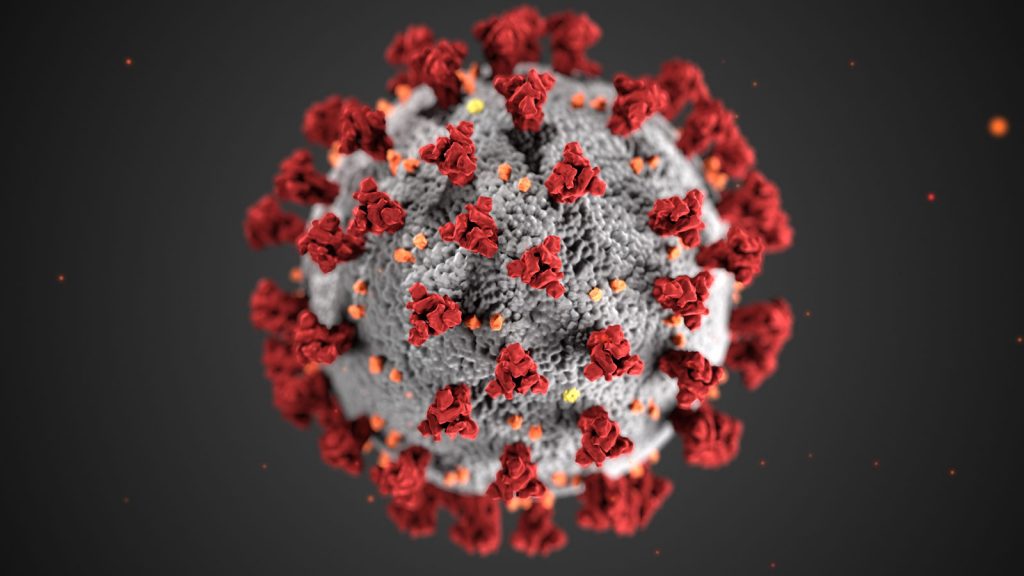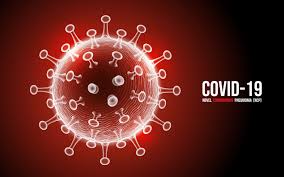What is coronavirus (covid-19), symptoms and prevention of coronavirus
Table of Contents

The coronavirus, which started 2019 year during a seafood and poultry market in Wuhan province of China, has become a significant matter for the planet today. After spreading this virus in 70 countries to date, it’s become the explanation for the death of about 3 thousand and the disease of quite 10 thousand people. what’s this virus, how it started, how it became a worldwide health emergency, the way to protect yourself and your family from this virus, is there any treatment for this virus? Read on to understand the solution to all or any of these questions and to understand the entire information about this virus.
Symptoms of the coronavirus can range from a light cold to more serious diseases like Middle East Respiratory Syndrome (MERS-CoV) and Severe Acute Respiratory Syndrome (SARS-CoV). Coronavirus is zoonotic which suggests disease. Both humans and animals can suffer from this virus. This virus has now been named “SARS-CoV-2” and therefore the disease caused by it’s called “Corona Disease 2019″ whose abbreviation is “COVID–19“.
This virus was first detected in the Wuhan province of China, after which its reach is being found in about 70 countries. On 23 January, the Chinese officialdom stops Wuhan, which features a population of about 1 crore, from the remainder of the country and therefore the world, and every one incoming and outgoing transport was stopped.
In the countries of Japan, South Korea, Thailand, Taiwan, us, this virus was entered and infected after the 20th of January.
On January 30, 2020, the planet Health Organization (WHO) declared this virus outbreak a social health emergency, which may be an explanation for international concern.
What are the symptoms of the coronavirus?
Symptoms of individuals with coronavirus appear 2 to 14 days after exposure. These symptoms are mostly mild and are usually ignored. Although some people are infected, they are doing not show any symptoms. These infections can happen even when there are not no symptoms. Your body’s viral load (number of viruses) is often almost like that of an individual with severe symptoms. this suggests that you simply are at an equivalent risk of infection as a significant tolerant COVID-19. 80 percent of individuals recover with no special treatment. If you’ve got recently returned from a COVID-19 containment zone, you’ll spread the infection to everyone who has are available contact with you or your family. In such a situation, it’s necessary to self-quarantine for 14-21 days.
The symptoms of individuals affected by the coronavirus are as follows –
- fever
- fatigue
- happy lot
- nosebleeds
- better nose
- pharyngitis
- difficulty breathing

How does the coronavirus spread?
This virus spreads by keeping on the brink of people already affected by this disease. This virus enters the body when the tolerant of this disease, by touching his eyes or nose or mouth, by contact with the place or object of droplets coming from coughing or sneezing. Inhaling these droplets also can become a victim of this virus. A distance of 1 meter (3 feet) should be maintained from people suffering from this disease.
your nose and mouth are susceptible
A 2020 report mentions that this coronavirus is more likely to urge into your nose and mouth than the throat and other parts of the body. you’ll be more likely to sneeze, cough, or inhale the air around you.
It can travel through the body faster
This coronavirus can travel through the body faster than other viruses. Data from China found that folks with COVID-19 were infected with the virus within the nose and throat just one day after symptoms began.
What is the condition of the coronavirus in India?
As of 5 March, India has 30 confirmed cases of coronavirus: 17 in Jaipur, 3 in Delhi and NCR region, 6 in Agra, 1 in Telangana, and three. Cases registered in isolation in hospitals. has been placed.
The Prime Minister’s Office, the Ministry of Health and Family Welfare, and therefore the Cabinet Secretary is keeping an in-depth watch on this example.
Can a vaccine cure the coronavirus?
There is no specific vaccine yet for the treatment of the coronavirus. to form this possible, clinical trials, studies and research are happening. WHO is additionally cautiously trying to seek out a cure for this virus.
Can wearing a mask protect you from getting infected?
Coronavirus has become the fastest-growing virus in the world. to save lots of themselves, half the population has come right down to wear surgical masks. the middle for Disease Control and Prevention believes that wearing masks reduces the danger of infection, but this method doesn’t provide complete protection. it’s better to guard yourself once you stand back from people affected by a coronavirus in other places.
In which people are this virus more dangerous?
The disease can take a more dangerous form within the elderly and in patients with the high vital sign, heart problems, and diabetes. aside from this, the virus is more easily suffering from patients already with a disease or people that have low immunity.
Can the HIV vaccine be the cure for this virus?
Some doctors in Thailand believe that a mixture of medicine utilized in the treatment of HIV is often a cure for the coronavirus. consistent with them, an astonishing recovery is seen in 48 hours after giving this medicine. But there’s no conclusive evidence to believe this case to be true.
By following which things are you able to keep yourself safe?
However, to date, no vaccine or medicine has been made for the treatment of the coronavirus. consistent with WHO and CDC, the danger of infection is often reduced by the following things –
- Clean your hands regularly after a while. Use soap and water, or scrub your hands with an alcohol-based sanitizer.
- Cover your nose and mouth together with your bent elbow or a tissue once you cough or sneeze.
- Keep a secure distance from people with COVID-19 or anyone who is coughing or sneezing.
- stand back
- don’t touch your eyes, nose, or mouth.
- If you are feeling unwell, occupy your home. don’t share your utensils, glasses, and bead with anyone.
- If you’ve got a fever, cough, and difficulty breathing, seek treatment.
- Regularly cleaning high-use areas with disinfectant.
- If you’re sick, stand back from public places like schools, offices, etc.
- Follow the instructions of your local health authority.
When to contact the doctor?
Severe infection with COVID-19 can cause Middle East Respiratory Syndrome (MERS-CoV) and Severe Acute Respiratory Syndrome (SARS-CoV) infection. it’s not advised to travel out if you’ve got symptoms of COVID-19, even to a medical clinic or hospital. This helps to stop the virus from spreading. Contact your doctor if any of your relations show signs of infection. If any member of your family shows signs of infection, contact the closest doctor by phone, or on the state helpline number.
The past of certain illnesses in relations puts you in danger of getting infected with severe COVID-19. If you or your beloved has any of the subsequent underlying conditions, be extra vigilant for symptoms of COVID-19, such as:
- Asthma or other
- respiratory illness
- Diabetes
- heart condition
- Low system (flame immunity)
In such cases, special caution is important.
If you’ve got warning signs of COVID-19, it’s recommended to hunt emergency medical attention. Contains:
- shortness of breath
- pain or pressure
- blue lips or face
- Confusion
- Drowsiness or
- sleepiness (inability to wake up)
to prevent the spread of this virus, it’s extremely important to require prevention strategies seriously. Practicing good hygiene, following safety instructions, and inspiring your friends and family to try to do so will go an extended way in preventing its spread.
